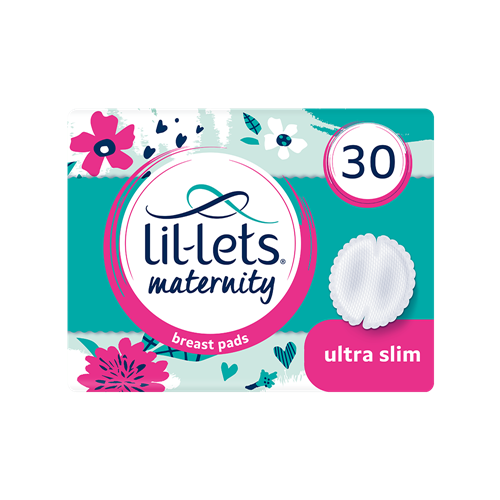Whether you choose to breastfeed or bottle-feed your baby, your body will naturally produce breast milk. Here's a breakdown of what to expect and how to stop your breast milk supply if you choose to bottle-feed your baby.
When it comes to feeding your baby, there really is 'no one-size fits all' solution. Ultimately what matters is what works for you, and your family and either method offers unique opportunities for bonding and nurturing.
It's worth knowing that even if you choose to bottle feed your newborn, breast milk will still be produced in those early days, and it comes in 3 stages.
When breast milk "comes in," it typically occurs between the second and fifth day after birth. Here are some signs to indicate that your milk is coming in.
Breast milk production occurs in 3 stages, and "coming in" refers to the transition from producing colostrum to mature milk. Here's a breakdown of the stages:
Colostrum Production - First 2-4 Days After Birth
Transitional Milk - Approximately Days 3-5 to Day 14
Mature Milk - Approximately 10-14 Days After Birth

Remember, stopping breast milk production is a process that should be done gradually to minimise discomfort and prevent complications.
Seek support from friends, family, or a healthcare professional, as the process can be both emotionally and physically challenging.
Managing breast leaks when you bottle feed can be challenging, but there are several strategies you can employ to minimise discomfort and inconvenience.
Disposable Pads: Convenient and hygienic, disposable pads can be easily changed throughout the day to keep you dry.
Reusable Pads: Made from fabric, these pads can be washed and reused, making them an eco-friendly option.
Regularly change breast pads and wear supportive bras to stay comfortable and dry throughout the day.
SmartFit™ Lil-Lets Maternity Breast Pads
Wear a well-fitted, supportive bra to help manage leaks and provide comfort and even if you're not breastfeeding, nursing bras with built-in padding can offer extra protection against leaks.
Applying cold compresses to your breasts can help reduce milk production and alleviate any discomfort or redness you experience.
Well, we’re not sure about this one, but we’ve been told placing chilled cabbage leaves inside your bra can help reduce engorgement and milk production.
Try to avoid activities that stimulate the nipples, as this can mimic the latching sensation of your baby and increase milk production and leaking.
It can be embarrassing for new mums when out and about and all of sudden, and out of nowhere your breasts start to leak. You may find wearing an extra layer of clothing can help absorb leaks and prevent stains from showing through.
If you are exclusively bottle feeding, medications like ibuprofen can help manage pain and inflammation associated with engorgement.

Recognising the early signs and understanding the causes and treatments can help you manage and prevent this condition effectively.
Bonding with your baby isn't solely dependent on breastfeeding. Holding, cuddling, and engaging with your baby during bottle feeding also fosters a strong emotional connection.
Skin-to-Skin Contact: Just like breastfeeding, bottle feeding can involve skin-to-skin contact, which promotes bonding and comfort for the baby.
Eye Contact and Interaction: During bottle feeding, you can maintain eye contact with your baby, talk to them, and respond to their cues, which helps in developing emotional connections.
Feeding Routines: Establishing feeding routines creates predictable moments of closeness and comfort between you and your baby, which contributes to their sense of security.
Shared Responsibilities: Whether you, your partner, or another caregiver is feeding the baby, it provides an opportunity for shared caregiving responsibilities, strengthening bonds within the family.
Comfort and Reassurance: Babies often find comfort in the familiarity and warmth of their caregivers during feeding times, whether breastfed or bottle fed.
Bottle feeding can be a wonderful opportunity to bond closely with your baby and will contribute significantly to your baby's emotional development and sense of security.
If you have questions about bottle feeding and if it’s right for you seek support from your midwife, or health visitor who can provide guidance and reassurance about your feeding choices.

Join our community at Lil-Lets talk, the place to go if you’ve got questions on pregnancy, periods or absolutely anything else!
Lil-Lets Talk
Apply cold compresses or ice packs to reduce swelling and pain. You can also use chilled cabbage leaves in your bra. If engorgement becomes severe, expressing a small amount of milk can relieve pressure.
In some cases, doctors may prescribe medication to help suppress lactation. Always consult with your healthcare provider before taking any medication for this purpose.
The time it takes for breast milk to dry up varies for each person. It can take a few days to several weeks. Gradual weaning can help make this process more comfortable and reduce the risk of complications.